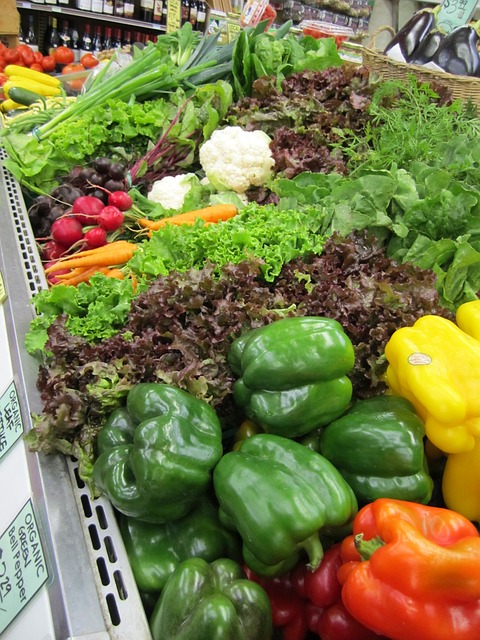When people consider transitioning to a vegan diet, one of the first questions that often arises is, “How will I get all the nutrients I need?” There’s a widespread misconception that plant-based diets can’t provide sufficient nutrition, especially when it comes to protein, iron, and calcium. But the truth is, a well-balanced vegan diet can not only meet all your nutritional needs but also offer a plethora of health benefits that go beyond traditional diets. 🌿✨
In this blog post, we’ll delve into the detailed nutritional profiles of plant-based foods, explore the health benefits of a vegan diet, and debunk common myths about vegan nutrition. Let’s dive in and discover why a plant-powered lifestyle is a fantastic choice for your health and well-being!
1. Nutritional Profiles of Plant-Based Foods 🌽🥑
Plant-based foods are rich in vitamins, minerals, antioxidants, and phytonutrients, making them nutritional powerhouses. Let’s take a closer look at the key nutrients found in popular plant-based foods:
- Leafy Greens (e.g., Kale, Spinach, Swiss Chard):
Packed with vitamins A, C, K, and folate, leafy greens are also excellent sources of iron and calcium. The high fiber content supports digestive health and keeps you feeling full. - Legumes (e.g., Lentils, Chickpeas, Black Beans):
Legumes are abundant in protein, complex carbohydrates, and fiber. They’re also rich in folate, iron, potassium, and magnesium, making them an essential part of a balanced vegan diet. - Nuts & Seeds (e.g., Almonds, Chia Seeds, Flaxseeds):
These little nutritional powerhouses are packed with healthy fats, protein, and fiber. They’re excellent sources of omega-3 fatty acids (especially chia and flaxseeds) and provide essential vitamins and minerals like vitamin E, magnesium, and zinc. - Whole Grains (e.g., Quinoa, Brown Rice, Oats):
Whole grains are complex carbohydrates that provide long-lasting energy. They’re also rich in protein, iron, and B vitamins, supporting healthy metabolism and brain function. - Fruits & Vegetables (e.g., Berries, Sweet Potatoes, Bell Peppers):
Bursting with vitamins, antioxidants, and phytonutrients, fruits and vegetables support immune health, reduce inflammation, and promote healthy skin and eyes.
2. Health Benefits of a Vegan Diet 💚
A vegan diet is more than just avoiding animal products—it’s a lifestyle that can transform your health in remarkable ways. Research has shown that a plant-based diet can provide a range of health benefits:
- Heart Health ❤️
Vegan diets are naturally low in saturated fats and cholesterol, making them heart-healthy. Studies have shown that vegans have a lower risk of heart disease and hypertension due to high intakes of fiber, antioxidants, and healthy fats from plant foods. - Weight Management ⚖️
Plant-based diets are often lower in calories and high in fiber, which helps with weight management and promotes satiety. Many individuals find it easier to maintain a healthy weight or lose excess weight on a vegan diet without the need for calorie counting. - Reduced Risk of Chronic Diseases 🩺
A well-balanced vegan diet is associated with a reduced risk of type 2 diabetes, certain cancers, and Alzheimer’s disease. The high intake of fruits, vegetables, and whole grains helps regulate blood sugar, reduce inflammation, and protect against cellular damage. - Improved Digestive Health 🌿
The fiber in plant foods promotes a healthy gut microbiome and regular bowel movements. It also helps prevent digestive issues like constipation, diverticulitis, and irritable bowel syndrome (IBS). - Boosted Energy Levels ⚡
Many people experience increased energy and improved mental clarity on a vegan diet due to the elimination of processed foods and the consumption of nutrient-dense, whole foods.
3. Debunking Common Myths about Vegan Nutrition 🥄🔍
Despite the growing popularity of plant-based diets, misconceptions about vegan nutrition still persist. Let’s bust some of the most common myths:
- “Vegans Don’t Get Enough Protein”
Contrary to popular belief, it’s easy to meet protein needs on a vegan diet. Legumes, tofu, tempeh, seitan, quinoa, nuts, seeds, and even vegetables like broccoli and spinach contain ample protein. For reference, 1 cup of lentils has about 18g of protein—more than a hamburger patty! - “Vegan Diets Lack Calcium”
While dairy is a well-known source of calcium, plant-based foods can provide just as much. Leafy greens, fortified plant milks, almonds, tahini, and tofu are all excellent sources of calcium. Additionally, calcium absorption from plants is enhanced by other nutrients like vitamin K and magnesium. - “Vegans Can’t Get Enough Iron”
Iron is found in many plant-based foods like lentils, chickpeas, beans, and spinach. Although plant-based iron (non-heme iron) isn’t absorbed as efficiently as animal-based iron, pairing it with vitamin C-rich foods (like citrus fruits, bell peppers, and strawberries) boosts absorption significantly. - “A Vegan Diet is Expensive and Inaccessible”
While specialty vegan products can be pricey, a whole-foods vegan diet focused on staples like beans, grains, and seasonal produce is often more affordable than a diet that includes meat and dairy. With some planning, you can eat nutritious, budget-friendly meals without breaking the bank.
4. Tips for a Balanced Vegan Diet 🥕💪
To ensure you’re getting all the nutrients you need on a vegan diet, keep these tips in mind:
- Include a variety of foods in your diet to cover all essential nutrients.
- Don’t forget to incorporate fortified foods or supplements for nutrients like B12, vitamin D, and omega-3s.
- Stay hydrated and get plenty of sunlight (or a supplement) for vitamin D.
- Enjoy the abundance of flavors, colors, and textures that plant-based foods have to offer!
Final Thoughts
Transitioning to a vegan diet doesn’t mean compromising your health or missing out on essential nutrients. In fact, a well-planned plant-based diet can provide all the nutrition you need while offering incredible health benefits. By incorporating a variety of plant-based foods and staying informed, you can thrive on a vegan diet and experience the powerful connection between what you eat and how you feel. 🌱💚
What’s your biggest nutrition concern when considering a vegan diet? Let us know in the comments below! ✍️👇
#VeganNutrition #PlantBasedDiet #HealthyLiving #NutritionMyths #VeganHealth

